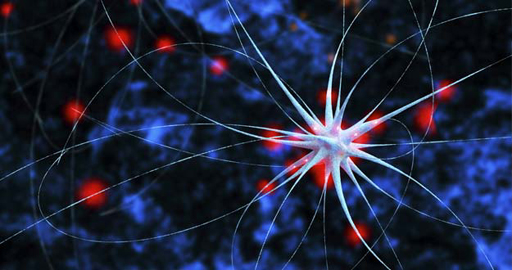Again, I have found that Spain has very good scientists, able to develop important discoveries, for example for Medicine. This time, it has been a finding against the spinal cord and brain injuries.
Indeed, a group of scientists from the Institute of Health “Carlos III”, of Madrid, have discovered a new pathway, in the development of therapies, to combat irreversible brain and spinal cord injuries.
The discovery consists in blocking a protein, that prevents the growth of axons --part of the neuron, that is responsible for transmitting nerve impulses--, which affects the regeneration of damaged nerves.

Nerve connection of neurons
This work, which has been led by Marçal Vilar, director of the Laboratory of Neurodegeneration of the Functional Unit of Chronic Diseases Research of the Institute Carlos III (UFIEC-ISCIII), has been published, in the latest issue of the journal PLoS Biology.
In the research, it has also collaborated the laboratory Kuo Fen Lee, belonging to the Salk Institute, in California (USA).
According to the evidence, presented in tests with mice, recovery of nerve damage rarely occurs due to inhibitory signals, associated with myelin --lining of each rib in the spinal cord and in the brain--, that surrounds and insulates the axon.
"The paralysis, resulting from spinal cord injuries, is owing to that the injured nerves can not regrow and can not perform their normal functions", Vilar has explained.
Such failure is associated with that, in injured areas, are liberated molecules, that bind themselves to specific receptors, located in the axon and prevent the growth and regeneration of it. In this line, these receptors, called Nogo Receptors (NgR), need to form a complex with the p75 protein, to achieve produce the signal, that cancels that regeneration.
In addition, another protein have been located, which are designated p45, which can bind to p75 and, in turn, block the inhibitory actions on recovery of the axon.
The ability to isolate these effects "is very important, in the protection and restoration of neurons", said Vilar.
"The studies, that we have conducted in both laboratories, have shown that p45 binds specifically to certain regions of p75, in order to block its function and signaling", has detailed the Spanish expert, who also stressed that: "We now know where to act, to block the activity of p75". With this new strategy, "we think that a door to the rational design of specific inhibitors of p75 to allow future therapeutic applications in various processes of brain damage and spinal cord injury is opened", concluded the researcher.
Well, I found this article very interesting and it made me think, once again, that in Spain we have very good scientists, and it is a shame that, often, they can not develop their projects, for lack of money.
Till soon, kind regards,
Luis.
Sponsored by Costaluz Lawyers.
Please click here below:
